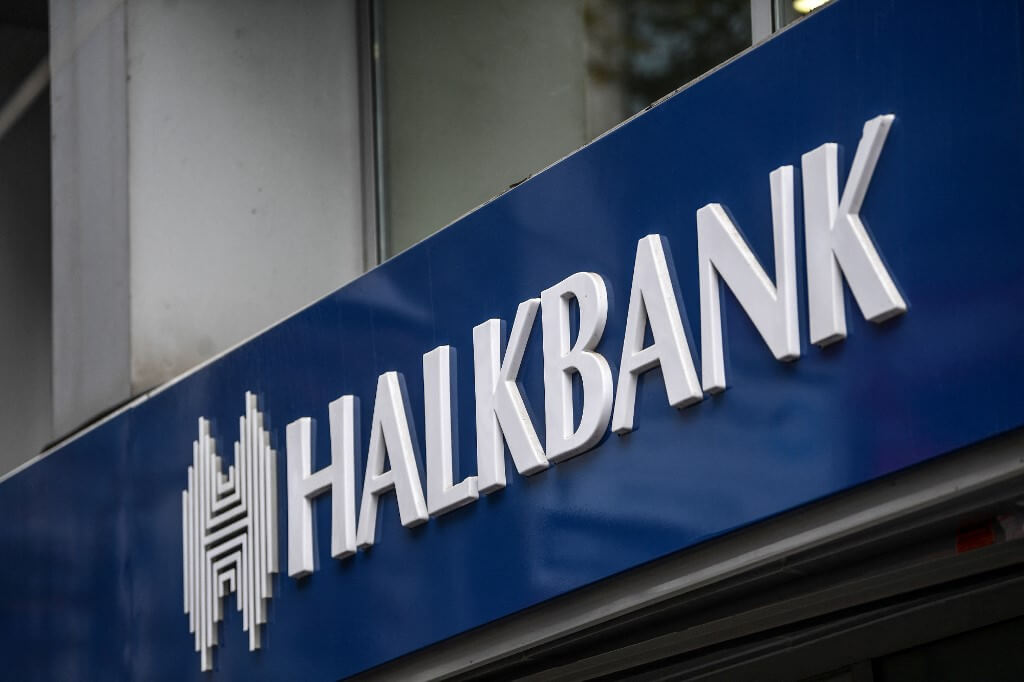The US Supreme Court on Monday denied a petition by hundreds of plaintiffs who are owed billions of dollars in damages and are seeking the turning over of funds that allegedly belonged to Iranian state-owned enterprises and were fraudulently conveyed by a Turkish state lender in a scheme to evade US sanctions.
James Owens et al v. Turkiye Halk Bankasi A.S. was brought by 876 plaintiffs in March 2020.
The plaintiffs are US government employees, or their surviving family members, who were victims of various terrorist attacks spanning the 1983 bombing of the US Marine barracks in Lebanon to the 2007 abduction and murder of US service members in Iraq.
They filed 13 lawsuits against Iran in the US District Court for the District of Columbia, resulting in over $10 billion in default judgments against Iran.
In 2020, these plaintiffs brought a lawsuit against Turkish state lender Halkbank in the US District Court for the Southern District of New York, accusing it of fraudulently transferring over $1 billion to Iran through US financial institutions, violating US sanctions and hindering the plaintiffs’ ability to collect their judgments. The lawsuit sought rescission and the turnover of fraudulent conveyances.
The district court dismissed the case in February 2021 on the grounds of “forum non conveniens” in favor of Halkbank’s argument that the case should be litigated in Turkey.
In May 2023 the US Court of Appeals for the Second Circuit upheld the lower court’s decision.
Following that, the plaintiffs filed a petition with the US Supreme Court to review the case.
The top court on Monday denied the petition without providing any reasoning, as is common with such denials due to the large number of petitions filed with the court each year.
Petitions filed with the Supreme Court requesting a review of a lower court’s decision, often from a federal court of appeals or a state’s highest appellate court, require the support of at least four justices to proceed, and most of them are ultimately denied.
Halkbank on Tuesday announced the Supreme Court decision in a statement published in the Public Disclosure Platform (KAP).
The bank also said the court proceedings regarding a second civil lawsuit (Hughes et al v. Reza Zarrab and Turkiye Halk Bankası A.Ş., a/k/a “Halkbank”), which was filed in July 2023, and a criminal lawsuit against the bank filed in 2019, are still ongoing.
The civil lawsuit was brought by American service members, civilians and their families who were affected by terrorist attacks and are seeking to hold Halkbank accountable for allegedly aiding and abetting these terrorist attacks and participating in a conspiracy related to them.
Halkbank was hit with US criminal charges in 2019 that it took part in a yearlong scheme to launder billions of dollars’ worth of Iranian oil and natural gas proceeds, violating sanctions on Iran.
The funds were used to buy gold, and the transactions were disguised as food and medicine purchases in order to fall under a humanitarian exemption to the sanctions, according to court documents.
As part of the scheme, Halkbank allegedly used front companies to funnel $20 billion to Iran, including $1 billion through the US financial system, the US Justice Department said.
The United States charged the bank with six counts of fraud, money laundering and sanctions offenses, calling it one of the most serious sanctions-breaking cases it has seen.
Halkbank claimed that the Foreign Sovereign Immunities Act (FSIA), which protects foreign leaders and governments from lawsuits in the United States, extends to state-owned businesses.
However the Supreme Court said in 2023 that the act focuses on civil actions and does not provide immunity from criminal acts.
Turkish President Recep Tayyip Erdoğan has repeatedly rejected the allegations facing Halkbank, insisting that Turkey did not violate the US embargo on Iran.
He accused his political rivals of fabricating the case.
Multiple individuals have already been found guilty in the case, including Mehmet Hakan Atilla, a deputy director general of Halkbank at the time, who was convicted in 2018.
Atilla was jailed in the US for a year and then released in 2019 and was greeted as a hero upon his return to Turkey.
Zarrab, a businessman who US prosecutors said had close ties to Erdoğan and was one of the figures behind the alleged sanctions-busting scheme and is sued by the 151 plaintiffs along with Halkbank, struck a plea deal and testified in Atilla’s trial as a witness.



